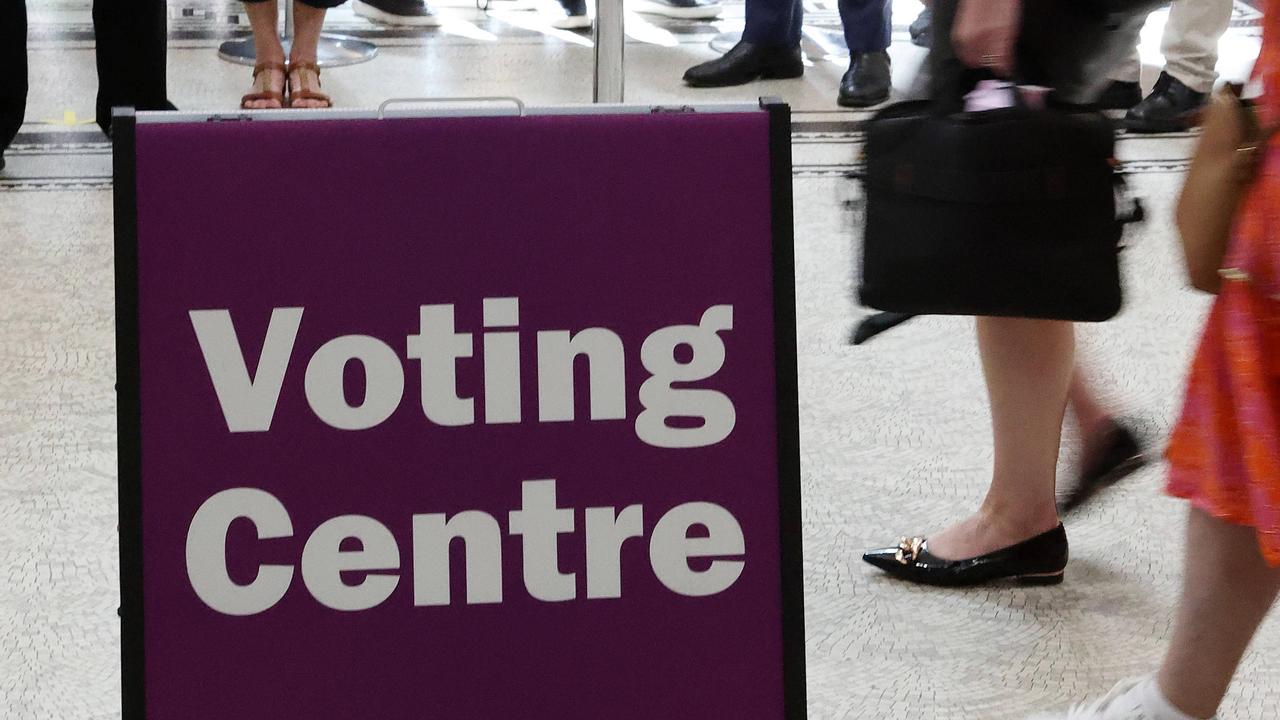In times of great struggle, when all hope is lost, a desperate man will often turn his gaze skywards and ask God for divine intervention.
And if that fails he turns to his taxi driver.
Cabbies, as we all know, are the most reliable indicator of public sentiment after Newspoll and so I was both wary and intrigued when mine gingerly brought up the subject of Saturday’s Voice referendum on a trip to the airport this week.
He was a very friendly and thoughtful young man with a broad pedigree: He studied in Sydney, then spent four years in Malaysia, and now lived in Melbourne. He was thus an expert in Sydney public transport (was bad, now good) and Melbourne traffic (not as bad as Kuala Lumpur).
But it was his thoughts on the Voice vote that were the most penetrating and insightful of all.
The campaign had been underwhelming, he said, but he was still going to vote yes. Indeed, he said as though it was a foregone conclusion, something any decent or normal person would do.
But he said a lot of people he knew would be rocking up on polling day just to cross their name off the roll and then not voting at all.
Or, to be more precise, voting informally — dropping in a blank ballot paper, writing something other than Yes or No or maybe just scrawling an old fashioned cock and balls in the finest Australian electoral tradition.
“Oh well,” I said. “At least it’s better than voting No.”
This may be the ultimate legacy of the No campaign: To sow so much confusion and anxiety about a simple vote that many people may simply not vote.
And in truth this would actually be the most honest response to the No campaign’s befuddling call to arms.
There is no doubt the slogan “If you don’t know, vote No” has resonated. But perhaps the take home message for some will be “If you don’t know, don’t show”.
Then again, that would risk the terrifying prospect of a $20 fine that the vast majority of non-voters ignore and never have to pay — think every local government election you never even knew was on — and so many more may well rock up, grab a sausage and a Solo, and just drop a blank ballot in the box.
Thus in a vote that has been riddled with confusion — sadly often deliberately — perhaps a blank sheet would be the most fitting response. A bit of comeuppance to both sides from the voter who has bigger worries on their shoulders.
But a far more glorious result for the great nation of Australia would be if everyone simply voted Yes and got on with their lives unchanged, and in so doing gave Indigenous Australians a fighting chance of getting on with their lives changed for the better. It’s not a big ask.
No one is coming for anyone’s backyard, no one is going to the High Court or seeking Indigenous input on nuclear submarines, and this as yet non-existent advisory committee ever had such hubris the parliament could instantly dissolve it.
On the other hand, if it had some good ideas about how to solve housing problems, institute grog bans or build proper preschools then by golly it might be worth listening to. We all know how the lifting of grog bans turned out when Indigenous communities didn’t have a voice.
It’s honestly no-brainer stuff but I know how things are going and I know how clever and effective the No campaign has been. I’m not pretending we on the Yes side haven’t been thoroughly outplayed.
But just consider this: Amid all the confected outrage about the Voice being promoted by the top end of town — outrage from members of the Qantas Chairman’s Lounge no less — who is listening to the bottom end of town?
Virtually every charity that deals with the poor and vulnerable and homeless supports the Voice as a vital solution to improve the lives of literally the most disadvantaged Australians.
These include Vinnies, the Salvos, Anglicare, Uniting Care, Baptist Care, Catholic Social Service, Save the Children and the Fred Hollows Foundation.
These are all people who work tirelessly, paid and unpaid, to help the poorest among us. People who see poverty, violence and sickness every day and know that these struggles are faced overwhelmingly and disproportionately by First Nations people at a level the rest of us simply cannot comprehend.
But this is not something we should feel guilty about, it is simply a problem we can fix.
And we can fix it today.
